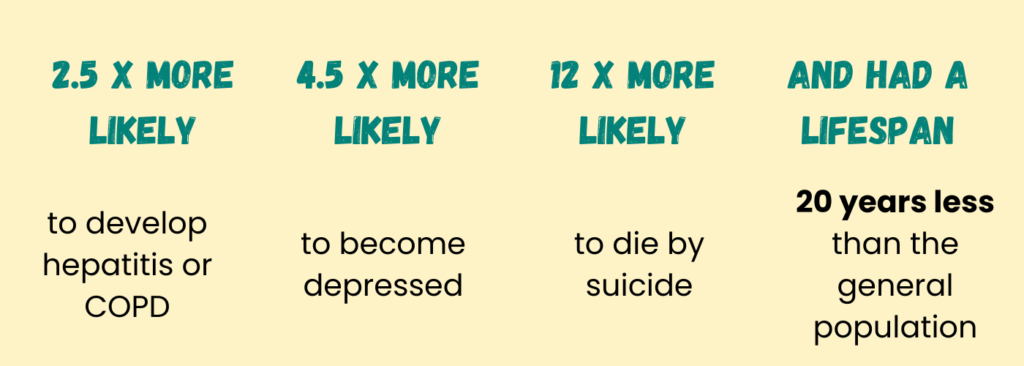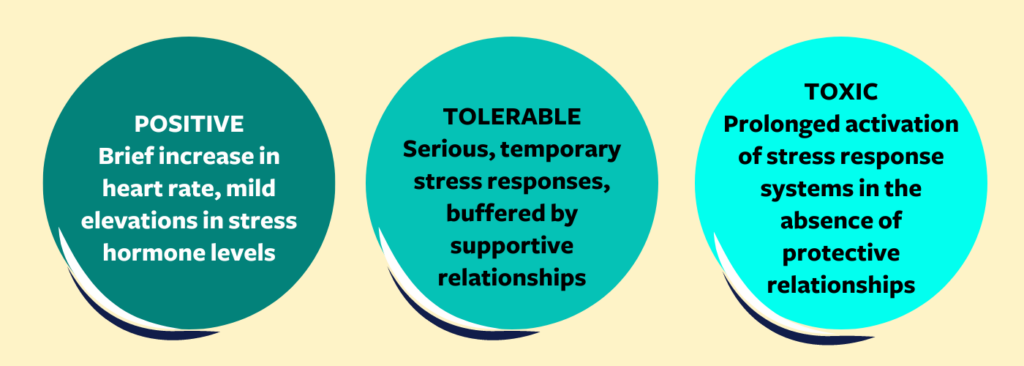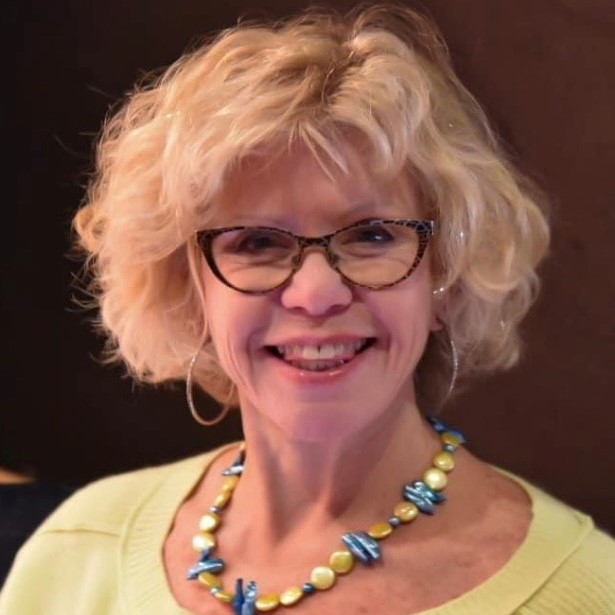
It was the Adverse Childhood Experiences (ACE) study in 1997 that made the link between early trauma and illness later in life official. The results overwhelmingly showed that the more significant hardships a person goes through in childhood, the greater their risk for illnesses such as cancer, diabetes, mental health issues, and addiction disorders. In fact, people with four or more ACEs were:

Toxic Stress Defined
The cause of these and other illnesses in such a population is termed “toxic stress.” When a child is frequently sad, scared, or frightened, their stress response system goes into overdrive, and doesn’t have time to rest, which puts a lot of wear and tear on the body and brain. This is at the expense of healthy brain development, as the brain cannot manage both damage control and growth. And the younger the brain, the more damaging the impacts of prolonged trauma.
Essentially, the toxic stress produced by multiple adverse childhood experiences maps out a lifelong detour from optimal health unless caring adults buffer that child from the impacts of trauma.

Prevention and Solutions
Ongoing stress can’t always be avoided. Children impacted by divorce, abuse, or neglect need stable and loving adults who can soften the effects of the ACEs and minimize long-term damage. Research shows the following positive influences can make all the difference for children experiencing toxic stress:
- Relationships with trusted adults
- Building self-efficacy; focusing on what they can control
- Learning how to self-soothe and regulate emotions
- Developing hope in the future
People with multiple ACEs run the risk of living lives marked by illness, but it doesn’t have to be that way. On an individual level, children need support from adults who can lessen the severity of the impact of ACEs. And on a systemic level, we need to invest in approaches known to reduce neglect and violence, such as strengthening household economic security, teaching social & emotional learning in schools, and offering affordable treatment for mental health and addiction issues. The long-term results of toxic stress are clear—the choice to meet this public health issue head-on is ours.
About the Expert

Marilyn G. Stein, MEd, CAAP graduated from Millersville University with a Bachelor of Arts in Social Work, going on to serve as a parole officer in Lancaster County, Pennsylvania for 23 years. During that tenure she earned a Master’s in Education from Penn State University in Training and Development.
Today, as MGS Consulting, Marilyn is in high demand as an instructor, educator, and coach. She develops curriculum and trains extensively on topics spanning addiction,
trauma-informed care, de-escalation, cultural diversity, stigma, and shame. One-on-one clients seek her expertise on everything from empowerment and bariatric transformation to sobriety. Against any backdrop, Marilyn helps people forge their paths through impactful education and acceptance of change, freeing them from today’s barriers and girding them for tomorrow’s.
Marilyn served as Vice President of the Pennsylvania Certification Board of Directors, holds a Certified Allied Addiction certification with a Criminal Justice specialty, and is a Certified TREM (Trauma, Recovery and Empowerment Model) trainer. She is the author of two books: DUI Countermeasures and Motivational Interviewing for Change Agents, and a founder of Highway Safety Central, a breakthrough program designed to eliminate substance use and driving.
Marilyn facilitates a domestic violence batterers intervention group for Lancaster County Courts and has taught an addiction course for the School of Social Work at Millersville University. She travels extensively for work but calls Lancaster, Pennsylvania home.
This post was originally published by WGAL TV 8 on www.wgal.com and sponsored by Donegal Insurance Group as part of the Mental Health Moment campaign. We thank WGAL TV 8 and Donegal Insurance Group for their support of prevention and mental wellbeing in our region.